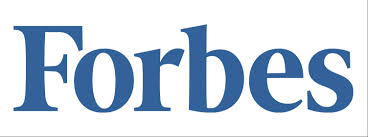



Instructor: David A. Meyer
Room & time: AP&M 5829, MW 9:30am-10:50am
Office hours: at research group meeting TTh 2:00pm-3:30pm AP&M 7218, or by appointment
Quantum computing offers the promise of more effective solutions to certain problems than are known to be possible on classical computers. The first such problem, simulating quantum systems, motivated Feynman's original proposal for a quantum computer in 1981. The modern version of this problem, Hamiltonian simulation, has attracted increasing attention recently, and led to results like Harrow, Hassidim and Lloyd's quantum algorithm for solving systems of linear equations.
This course will follow this strand of research, covering PDEs and (quantum) random walks in 1D, quantum random walks beyond 1D, algorithmic applications, general Hamiltonian simulation, phase estimation, quantum algorithm for solving systems of linear equations and, if time permits, applications of the latter to PDEs, nonlinear ODEs, regression; the universality of quantum random walks; and simulation of quantum field theories.
Some background in group theory, probability, quantum mechanics, cryptography, algorithms, or computational complexity will be useful, but is not required; basic knowledge of linear algebra and differential equations will be assumed. Although there is no text for this course, Quantum Computation and Quantum Information by Michael Nielsen and Ike Chuang provides an excellent reference for the whole subject [1]. Other useful references include David Mermin's text, Quantum Computer Science [2] and the lecture notes of John Preskill [3] and Scott Aaronson [4]. There will be no exams, but students taking the course for a grade will be asked to present solutions to intermittently-assigned homework problems, or to summarize a relevant topic of their choice.
| 1 Apr 13 |
course organization and overview summary of Feynman's paper "Simulating physics with computers" [5] introduction to the mathematical formulation of quantum mechanics [6] Postulate 0: State of quantum system is vector in Hilbert space |
| 3 Apr 13 |
Postulate 1: Measurement is choice of basis; outcome is basis vector with probability norm-squared of projection continuous time quantum random walk on N-cycle [7] continuum limit is Schrödinger equation continuous time classical random walk on N-cycle continuum limit is diffusion (heat) equation [lecture notes] |
| 8 Apr 13 |
discrete time classical random walk by integrating the continuous time classical random walk diagonalization by discrete Fourier transform resulting Markov matrix is non-local continuous time random walk as product of Poisson process and fair Bernoulli a local discrete time classical random walk continuum limit is diffusion (heat) equation [lecture notes] |
| [1] | M. A. Nielsen and I. L. Chuang, Quantum Computation and Quantum Information (Cambridge: Cambridge University Press 2000). |
| [2] | N. D. Mermin, Quantum Computer Science (Cambridge: Cambridge University Press 2007); draft chapters online. |
| [3] | J. Preskill, Physics/Computer Science 219 lecture notes (1997-2004). |
| [4] | S. Aaronson, PHYS771 Quantum Computing Since Democritus lecture notes (2006). |
| [5] | R. P. Feynman, "Simulating physics with computers", International Journal of Theoretical Physics 21 (1982) 467-488. |
| [6] | J. von Neumann, Mathematische Grundlagen der Quantenmechanik (Berlin: Springer-Verlag 1932); transl. by R. T. Beyer as Mathematical Foundations of Quantum Mechanics (Princeton: Princeton University Press 1955). |
| [7] | R. P. Feynman, R. B. Leighton and M. Sands, Lectures on Physics, Vol. III (Menlo Park, CA: Addison-Wesley 1965). |

|
N. Jones, "Further proof for controversial quantum computer", Nature news blog (22 April 2013). |

|
A. Knapp, "The space station could be the next frontier of quantum communications", Forbes (10 April 2013). |

|
T. Harbottle, "B.C. s superfast quantum computer upgrade attracts Lockheed Martin", The Globe and Mail (5 April 2013). |

|
Z. Merali, "Data teleportation: The quantum space race", Nature (5 December 2012). |